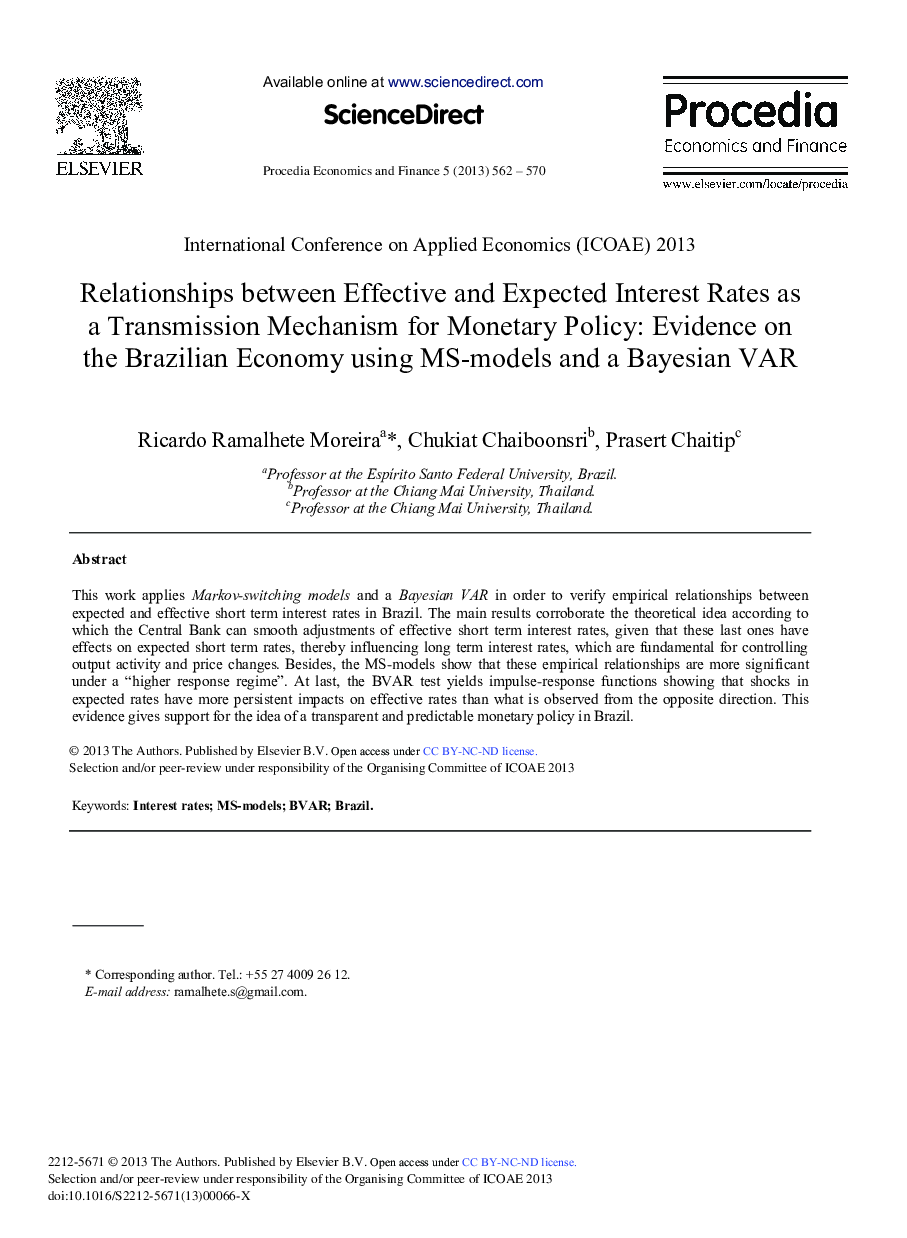| Article ID | Journal | Published Year | Pages | File Type |
|---|---|---|---|---|
| 981949 | Procedia Economics and Finance | 2013 | 9 Pages |
This work applies Markov-switching models and a Bayesian VAR in order to verify empirical relationships between expected and effective short term interest rates in Brazil. The main results corroborate the theoretical idea according to which the Central Bank can smooth adjustments of effective short term interest rates, given that these last ones have effects on expected short term rates, thereby influencing long term interest rates, which are fundamental for controlling output activity and price changes. Besides, the MS-models show that these empirical relationships are more significant under a “higher response regime”. At last, the BVAR test yields impulse-response functions showing that shocks in expected rates have more persistent impacts on effective rates than what is observed from the opposite direction. This evidence gives support for the idea of a transparent and predictable monetary policy in Brazil.
